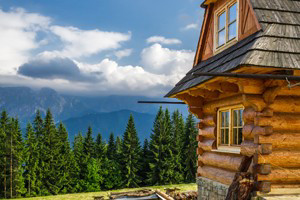History of the Gold Rush
When, in 1848, James Marshall discovered gold in the American River, few knew exactly what it would mean for California. As word spread over the next decade, roughly 300,000 settlers from within and without the United States flocked to the Sierra Nevada Gold Fields of California, seeking free gold and quick riches. This huge population boom had drastic effects on California's people and land. From a relatively quiet area under American military occupation, it became a territory with one of the more diverse, and self-driven, populations in the country. A perfect example is San Francisco, one of the major hubs of the gold rush, which exploded in population and diversity, growing from a mere 800 people into a culturally rich city of 50,000 in only five years.
Environmental Effects
As the rivers were stripped of easily found nuggets and gold became more difficult to locate, miners and gold seekers found ingenuous new ways to seek out their fortunes. Unfortunately, these methods often took their toll on the environment, flattening mountains, filling valleys and choking waterways. And, as the environment suffered, so did the growing agricultural economy in California.
Today
Today, souvenirs from California's great gold rush can be found throughout the state and the area around Yosemite. Small ghost towns and local museums offer insights into how prospectors and miners lived and spent their days, and relics can be found alongside creeks and rivers and in old farmsteads. For those interested in driving, California State Route 49 winds its way through many small towns and areas with rich Gold Rush histories, including Columbia State Historic Park.
